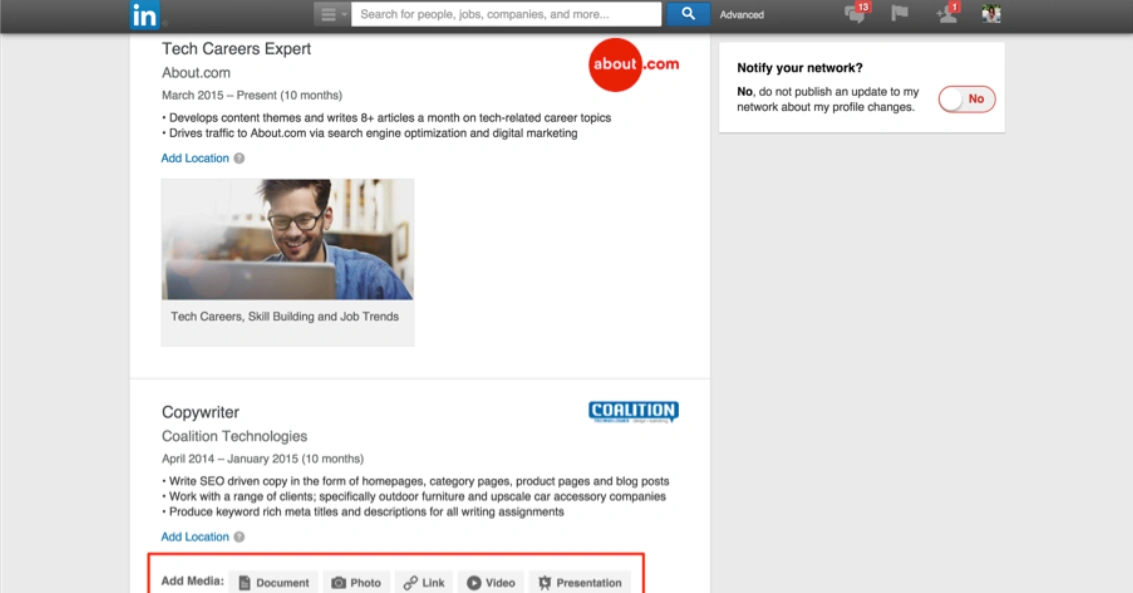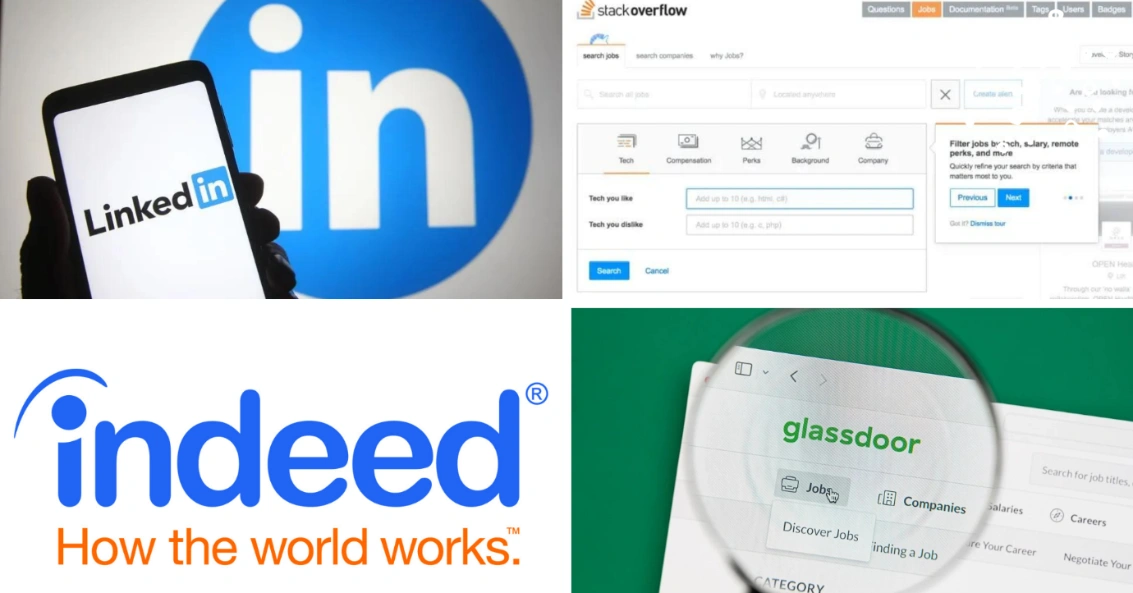Table of contents
- Understanding the Role of a Full Stack Developer
- Building a Strong Foundation to Land Your First Full Stack Developer Job as a Fresher
- Crafting Your Resume and Portfolio
- Preparing for Interviews for Your First Full Stack Developer Job as a Fresher
- Networking and Job Search Strategies
- Continuous Learning and Growth
- Most common mistakes freshers make when applying for full-stack developer jobs
- Conclusion
Landing Your First Full Stack Developer Job as a Fresher: Tips and Tricks
A full-stack developer’s career is one of exciting adventures filled with many opportunities to work in different industries and develop a wide range of skills Getting your first job as a full-stack developer can be very difficult for those who do new.
But with the right mindset and direction, nothing is impossible.
Don’t be afraid!
This guide right here will help you navigate the full stack task marketplace along with some important tips and tricks to face out as a promising candidate.
Understanding the Role of a Full Stack Developer
If an individual want to get a job in this area, he/she must first know what a full stack developer does exactly.
A full stack developer is an individual who has the ability to work on both frontend and backend process of web development This means that they could develop a full featured web application from start to finish and are capable of taking care of everything from the client interface and database control.
Key Skills Required
- Front-End Technologies: Learn HTML, CSS and JavaScript. It’s the same as learning to walk before you can run. React, Angular, or Vue.js are your running shoes in this, which help to get you to that finish line more effectively.
- Back-End Technologies: Get comfortable with the server side languages like Node.js, Python, Ruby, PHP or Java. Frameworks like Express.js, Django or Spring are your reliable sidekicks during this journey. Make sure knowing the best full stack framework for your needs will save a lot of headaches during development and add to the scalability and maintainability boost of your projects.
- Databases: Get familiar with Relational databases – MySQL, PostgreSQL and with NoSQL – like MongoDB. Knowing two dialects of one language is pretty much like that.
- Version Control: Git and platforms like GitHub or GitLab are the secret handshakes of the developer’s global.
- DevOps Basics: Get familiar with deployment processes, Docker, CI/CD pipelines, and cloud services like AWS, Azure, or Google Cloud – because every hero needs a utility belt.
Building a Strong Foundation to Land Your First Full Stack Developer Job as a Fresher
1. Education and Courses
Whether you hold a computer science degree or are learning on your own through full-stack web development courses and boot camps, there are many resources available to help you succeed. Platforms like Proleed Academy, Coursera, Udemy and freecodecamp are great sources of knowledge that help you succeed in this field.
2. Hands-On Projects
According to me, the theory is great, but what pays off the most is putting it into practice. For instance, start working on simple projects like a personal portfolio, blog or a basic e-commerce site. These projects will help you show prospective employers that you have dealt with problems before and have had extensive experience in this field.
3. Open Source Contributions
Often in the developer world, open source contributions are like calling cards. This will show that you are capable of working in a team, handling version control and writing codes that can use. Plus, those contributions entitle you to declare that you are part of something bigger and also similar to being in a superhero team.
Crafting Your Resume and Portfolio
1. Tailored Resume
For example:
- I successfully created a web application for a startup company using reach, node.js and mongoDB, which has pulled 500+ monthly users within the first 3 months of the project.
- The task involved working with a team of developers on open-source to make substantial contributions; that is, in improving the codebase and adding new features on the project.
2. Online Portfolio
- Links to live demos and source code repositories.
- A short description of each project, technologies used, and challenges you overcame.
- Developed a dynamic e-commerce platform using React, Redux, Node.js, and MongoDB with real-time features and ensured a flawless user experience.
- Built a responsive blog website using HTML, CSS, JavaScript, and Express.js, focusing on performance and accessibility.
3. LinkedIn and GitHub Profiles
For example:
- LinkedIn: Updated profile with details of project descriptions, endorsements, and connections with peers and industry leaders.
- GitHub: Regular contributions to open-source projects demonstrate proficiency in version control, collaborative coding, and project management.

Preparing for Interviews for Your First Full Stack Developer Job as a Fresher

1. Technical Knowledge
Interviews are something like pop quizzes, but the stake is quite big. To secure a job in a top IT corporation, be prepared for the full stack web developer interview questions and be ready to answer frontend and backend technologies, databases, and model control. Practice coding challenges on LeetCode, HackerRank, or CodeSignal, as these will surely sharpen one’s problem-solving capabilities.
2. Building a Solid Project
Some companies use a coding challenge or take-home project. These are great opportunities to show your skills. To make the most of these opportunities, take in mind the following points.
- Ensure that your code is clean
- Provide good documentation and adhere to best practices.
- Test thoroughly to ensure functionality and catch any bugs.
- Optimize for performance where possible.
Remember, first impressions count—even in code.
3. Behavioural Questions
For Example:
- Situation: Describe a project where you have encountered a big problem.
- Task: Describe the task or objective you need to accomplish.
- Action: Elaborate on the actions you took to overcome the challenge.
- Result: Share the result of what happened and what you learned from the experience.
Networking and Job Search Strategies

1. Networking
Effective Networking Strategies for Landing Your First Full Stack Developer Job as a Fresher
- Have a concise introduction ready that outlines your skills and objectives.
- Send a follow up message after the meeting to remind the person about you and your interest in them.
- Remember, networking is a two-way street. Be willing to help or offer your expertise as needed, to help build a relationship with them.
- Keep up to date on industry news and trends so that you can have meaningful discussions and demonstrate your care for the profession.
- Participate in discussions on the platforms like LinkedIn, GitHub, and niche forums to increase visibility.
2. Job Portals and Company Websites

Effective Job Application Strategies for Full Stack Developers
- Tailor each application to relevant skills and experience.
- Understand the values, culture, and projects of the company and have your application align with them.
- If possible, reach out to people in the company with whom you can connect on LinkedIn or from industry events to gain their insight.
- Don’t forget to show continued interest with a respectful follow-up email after applying.
- Keep track of applications, deadlines, and follow-ups to keep on top of your job search process.
3. Internships and Freelancing
Internships and freelancing are like the training wheels of your career. They provide priceless experience and help you build a professional network. Even when they are short-term, or part-time, they offer real-world experience that can usually transform into full-time positions. Students have the facility to work from home while managing their studies, making internships and freelancing ideal options for gaining experience.

- Look out for internships, freelancing in different sectors, or with varied scopes of projects for skill diversification.
- These opportunities will help you network and establish strong relations with professionals in your field.
- Show initiative and willingness to learn during internships and freelance projects to leave a positive impression.
- Keep a record of your achievements and skills developed from these experiences to display in future job applications.
- Be open to new challenges and flexibility, for which internships and freelancing often bring one to different work environments and tasks.
Continuous Learning and Growth
1. Stay Updated
Since the tech space is very dynamic, there is a need for constant learning to stay updated on the latest trends and technologies to secure a full-stack job for freshers. Engage with tech blogs, sign up for newsletters and attend webinars and other online courses.
2. Join Professional Communities
Professional communities are very good sources of encouragement, resources and finding opportunities for growth. For example, the Association for Computing Machinery and the Institute of Electrical & Electronics Engineers are two well versed organizations that offer memberships containing access to publications, conferences and networking events.
3. Mentorship
Finding a mentor can avail guidance, feedback, and support in your career navigation. Look for experienced individuals within your network or through formalized mentorship programs offered by professional organizations.
Now we have a proper foundation in place to lead you to get your first full-stack developer job as a fresher. But then, there is one more thing that you consider during this journey: attitude and perseverance. Now let’s talk about the
Most common mistakes freshers make when applying for full-stack developer jobs

1. Unrealistic Expectations
Advice: Focus on Core Skills
For a full-stack web developer job as a fresher, instead of trying to master everything in the full-stack developer field, focus on a strong core skill base. Start with a single front-end framework you master, like React or Angular, and one back-end language like Node.js or Python. This will make you a valuable candidate without spreading yourself too thin.
Remember, employers generally prefer depth in a few key technologies over shallow knowledge across many. Tailor your learning journey to match the industry’s demands and your own career goals.
2. Lack of Technical Proficiency
Advice: Build and Showcase Practical Skills
Focus on practical projects, real-world applications, and demonstrate how you have applied technical competence. Participate in coding challenges and contribute to open source projects; include these experiences on your resume and in your portfolio to reflect the ability to handle technical challenges efficiently.
3. Ignoring Team Dynamics
Advice: Emphasize Team Collaboration Skills
Emphasize your teamwork and communication skills at the hiring stage. Give examples of collaborative projects in which you worked on a team and how you contributed to its success, thus showing you understand the importance of fitting in and enhancing the dynamics of a team.
4. Overvaluing Specific Technologies Over Fundamentals
Advice: Prioritize Core Principles
Emphasize your expertise in the basics, inclusive of algorithms, statistics structures, and software program design principles. This sturdy base can be proof to employers that you can adapt to maximum technologies and tools applied in work.
5. Not Setting Clear Expectations
Advice: Prioritize Clear Communication
Ask detailed questions about the job role and performance expectations during interviews. Understand the responsibility, goals, and criteria for success in order to align your skills and career aspirations with the needs of the company, avoiding future misunderstandings and dissatisfaction.
Conclusion
Getting your first full stack developer job, as a fresher, is like chasing a unicorn, but with a mix of the right skills, persistence, and strategic moves, it is absolutely within your reach. Remember, tech is a vast and dynamic playground, and continuous learning and growth are your biggest buddies. Keep building, learning, and applying—your first job is the start of this great journey into technology.

